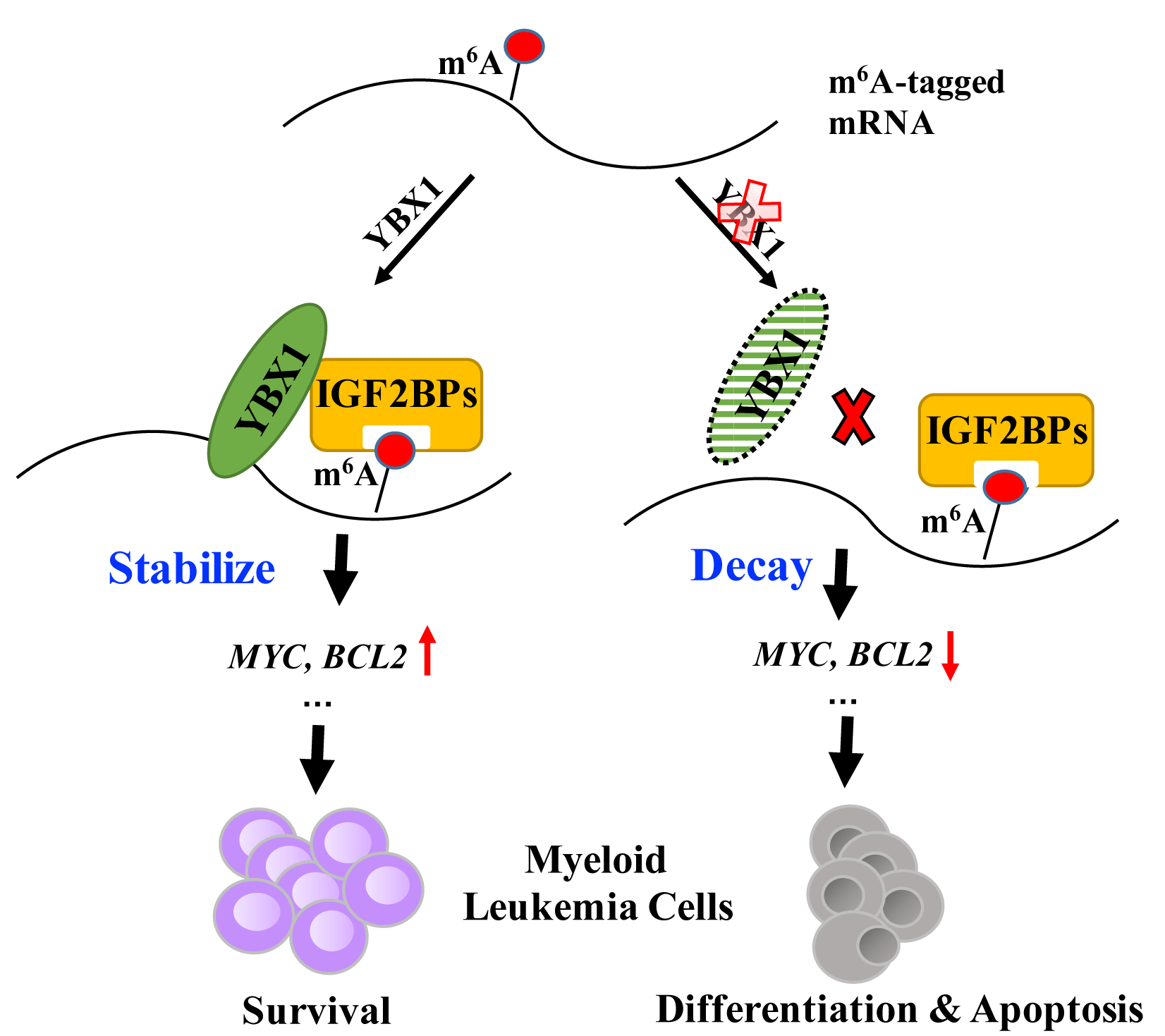New study from Prof. Haojian Zhang's laboratory reveals an important role of YBX1 in acute myeloid leukemia
On March 24, 2021, the international renowned journal BLOOD published an article entitled "YBX1 is required for maintaining myeloid leukemia cell survival by regulating BCL2 stability in an m6A-dependent manner", reported the molecular mechanism of YBX1 in selectively regulating the survival of myeloid leukemia cells. This work came from Dr. Haojian Zhang’s laboratory. Dr. Zhang is a professor of the Frontier Sciences Center of Immunology and Metabolism, Medical Research Institute, Wuhan University.
Acute myeloid leukemia (Acute myeloid leukemia, AML) is an aggressive hematologic malignancy characterized by the poor differentiation, uncontrolled proliferation of myeloid progenitor cells. AML is still the fatal hematological tumor and is prone to relapse and drug resistance, which has brought great troubles in clinics. Therefore, studying AML pathogenesis and exploring new therapeutic targets are key scientific issues in this field. RNA binding proteins (RBPs) are crucial regulators of RNA fate via involving in transcription and post-transcriptional regulation. Recent studies indicate that few RBPs are essential for normal hematopoiesis and hematopoietic malignancies. However, it remains unclear whether other RBPs involve in AML development. Through comprehensively analyzing the expression levels of all RBPs mRNA in AML patient cells, researchers found that YBX1 displayed obviously higher expression in AML cells. Further, they knocked down YBX1 by shRNAs targeting YBX1 in primary leukemia cells and cell lines derived from AML patients, and found that YBX1 deletion significantly inhibited cell proliferation and clonogenic capacity, and promoted leukemia cell differentiation and apoptosis. To further study the function of YBX1 in AML in vivo, the researchers generated Ybx1 conditional knockout mice and established a mouse model of AML induced by the classic MLL-AF9 fusion oncogene. The human xenograft (PDX) model of AML was also used. They found that YBX1 deletion significantly inhibited the development of AML. Interestingly, YBX1 deficiency had no significant effect on normal hematopoiesis and hematopoietic stem cell function. Mechanistically, YBX1 interacts with IGF2BPs through its CSD domain and stabilizes m6A-tagged RNA. Moreover, YBX1 loss dysregulated the expression of apoptosis-related genes, and promotes decay of MYC and BCL2 mRNA in an m6A-dependent manner, which contribute to the defective survival due to YBX1 deletion. Thus, these findings uncover a selective and critical role of YBX1 in maintaining myeloid leukemia survival that might provide a rationale for the therapeutic targeting of YBX1 in myeloid leukemia.
Prof. Haojian Zhang is the corresponding author of this paper, and graduate students, Mengdie Feng, Xueqin Xie, and Guoqiang Han, are the co-first authors. This study is another important research progress from Dr. Zhang’s laboratory, right after this group reported their findings about the role of ALKBH5 in leukemia stem cells in the top international journal Cell Stem Cell in 2020. This research was supported by Prof. Jianjun Chen from the National Medical Center of the City of Hope, Prof. Shaoguang Li from the University of Massachusetts School of Medicine, Prof. Lingbo Liu from Union Hospital of Huazhong University of Science and Technology, and Prof. Fuling Zhou from Zhongnan Hospital of Wuhan University. This work was supported by the National Natural Science Foundation of China and the National Key Research and Development Program of China.
